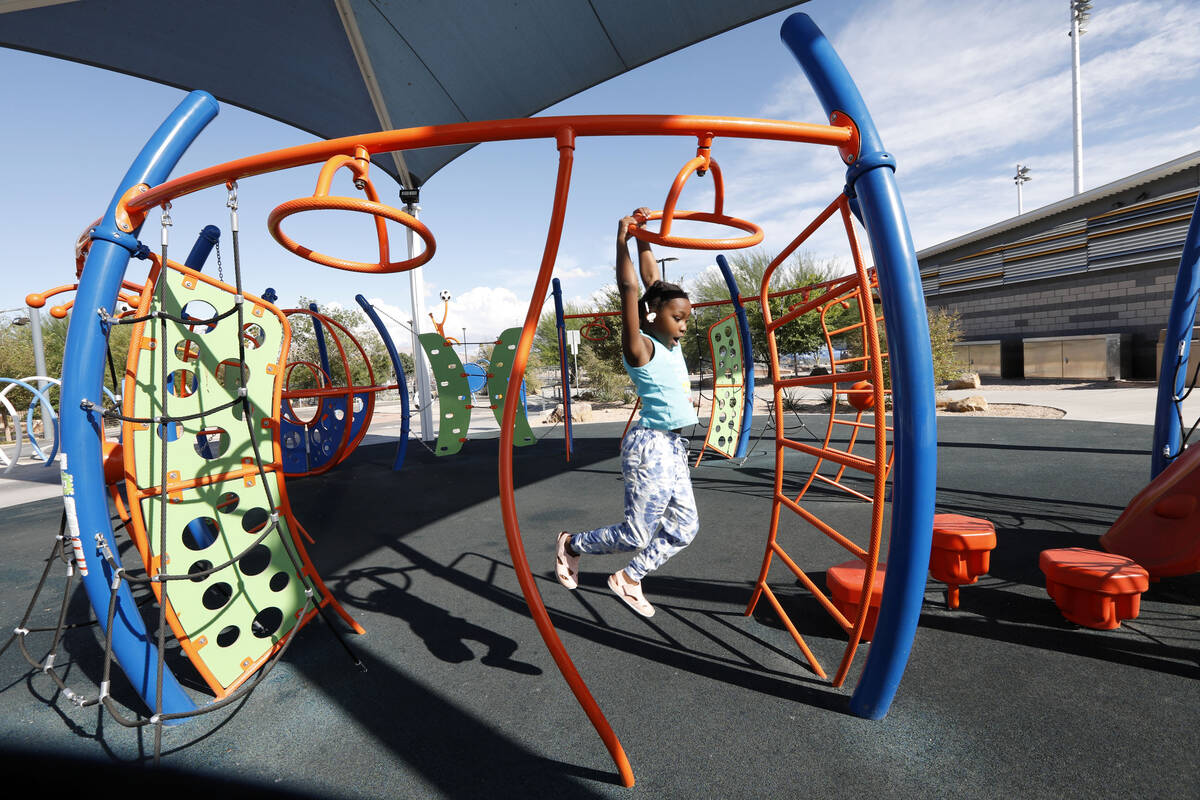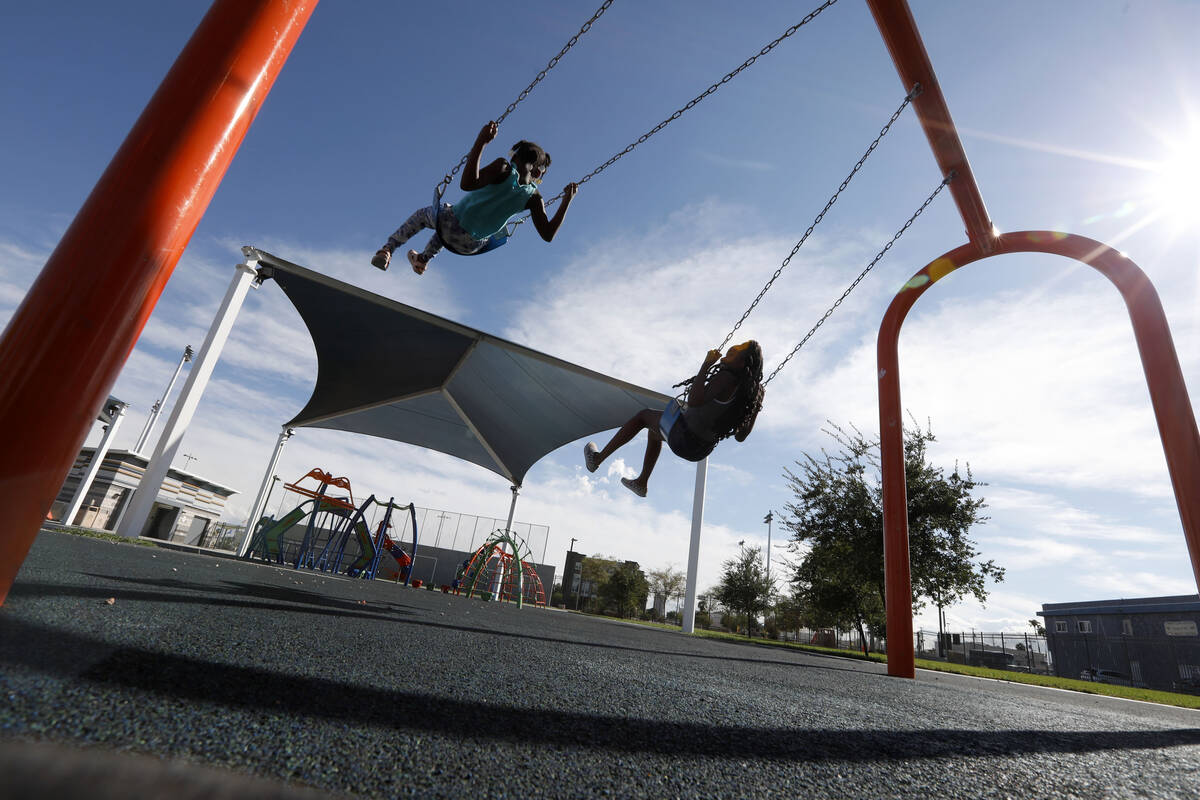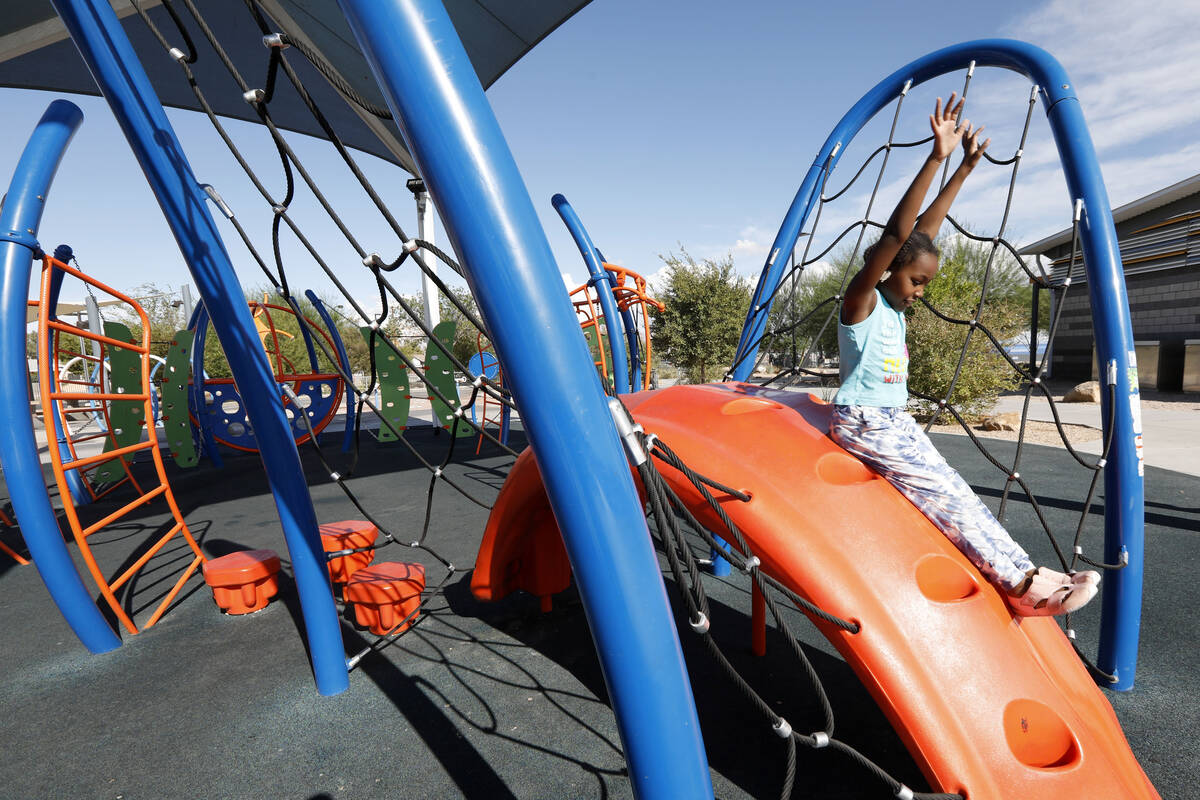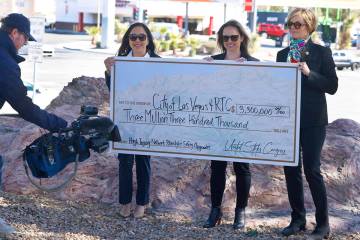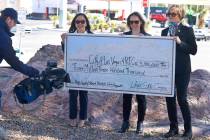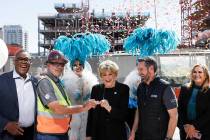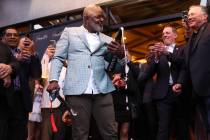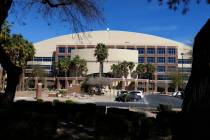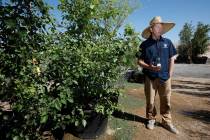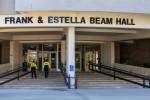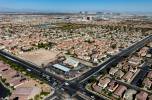Las Vegas to deploy cameras at city park in test run
In the Southridge neighborhood, where the hulking Strat tower nearby is usually the subject of photographs, cameras soon will be pointed elsewhere.
Five wireless cameras will be mounted on light poles at Baker Park, providing law enforcement and other city staff with remote intelligence.
The yearlong pilot program will allow city marshals to keep a live watch over public safety and enable city staff to view how many people are using the park and when it needs maintenance, according to city Information Technologies Director Michael Sherwood.
If the camera technology can reliably send data to the city over the pilot period, the program could be extended at the park and expanded to others across Las Vegas.
The experimental project, which is anticipated to break ground in a few weeks, illustrates the broader surveillance goals of city officials who have been internally testing other high-tech options to deploy across parks for at least part of the past three years.
Infrared cameras have been tested. So has an automated public address system that would notify after-hours visitors that the park is closed, autonomously signaling a city marshal should patrons ignore instructions to leave. But those projects have not yet panned out, in part due to technological limitations, although Sherwood said the city has not given up on them. They were never tested in public, he said.
Unique undertaking
Roughly a year in the making, the pilot program at Baker Park will be more rudimentary. Three fixed cameras will provide foot traffic data through a computer. Two cameras, which are movable, will display video that can be viewed in real time.
In addition to cameras, Sherwood said that air quality sensors will be set up. There are no plans, he said, to test infrared cameras or a public address system as part of the pilot project.
The upcoming test run represents a step forward for Las Vegas’s smart city initiatives, which have been centered in economic development and safety. When it was announced late last month, the city’s partner, Cox Communications, said it was one of the first projects of its kind to be launched in the United States
The pilot program is expected to roll out by the first quarter of next year at no cost to city taxpayers, backed by a $300,000 grant through National Science Foundation-funded U.S. Ignite Inc.
Protection and privacy
Although city marshals will be able to remotely monitor the park through two cameras, Sherwood insisted that the program is not intended to act as a policing system nor to replace traditional public safety officers. But officials hope it will allow patrols to be sent to the park only when needed. He said video and audio are not recorded so there is no chance that conversations will be overheard.
“Again, our whole goal is not to identify the people,” he said. “What we want to do is, if someone’s in the park at night, falls and gets hurt, can we pick up on that?”
Cox says the technology will be on a private network and that all data will be encrypted to protect the privacy of park visitors. Data will be accessible to the city, including historical information about park occupancy, parking lot use and events that take place in the park.
But the surveillance tactics of public agencies have long caused alarm. Privacy concerns have been raised recently in Tampa Bay, Florida; New Haven, Connecticut; and even Venice, Italy.
“The centralization of these government-run camera systems are presenting serious issues,” with the potential for abuse of their tracking and monitoring capabilities, said Athar Haseebullah, executive director of ACLU of Nevada.
Often surveillance can have “a chilling effect” on park visitation, Haseebullah said. He added that while the ACLU is not opposed to cameras in high-profile places such as the U.S. Capitol, inserting them into neighborhoods raises questions about whether communities of color are the intended target.
Baker Park was chosen as the city’s test site due to its proximity to City Hall, not because it has seen problems, according to Sherwood. City staff and crews must frequently visit the park over the yearlong pilot period to monitor the project’s progress.
County-backed cameras coming
In some ways, the project is similar to ShotSpotter, the county-funded gunshot detection system that relies on audio sensors that are set up throughout roughly 24 square miles in Clark County.
ShotSpotter has faced scrutiny from some who have questioned whether it violates privacy or if it is as accurate as advertised. Police and government officials say it has been effective in reducing violent crime.
As Las Vegas prepares to go live with its Baker Park initiative, ShotSpotter is on the verge of expansion. Cameras are expected to be deployed over the next four to six months at eight parks across the valley, many of which are in existing ShotSpotter coverage areas, according to the Las Vegas Metropolitan Police Department.
‘Cautiously optimistic’
Councilwoman Olivia Diaz, who represents the Southridge neighborhood, said that constituents should not be worried.
“We’re not really deploying the technology to be in everyone’s business,” she said. “I know it’s a concern, but I think sometimes there can be good uses of technology and making sure we’re working smarter and harder for the benefit of the community.”
City officials say that practical project uses could include determining the ideal times for trash pickup, identifying dangerous traffic patterns or learning that a sprinkler head is broken.
Diaz said she was “cautiously optimistic” that testing would ultimately provide useful data to the city.
Michael Hanratty, president of the Southridge Neighborhood Association, said Baker Park is “pretty well maintained” and laid-back, located in the center of the neighborhood near an eclectic mix of private businesses and churches. Known for its playground and artificial turf soccer fields, the park does not face severe issues with crime or homelessness.
Hanratty expressed no concerns about the project and he said that some neighbors may be more encouraged to visit the park although it is already fairly safe.
But he also acknowledged that there are others who might feel differently: “If I go to a park, do I want police looking at me all the time?”
Contact Shea Johnson at sjohnson @reviewjournal.com or 702-383-0272. Follow @Shea_LVRJ on Twitter.



